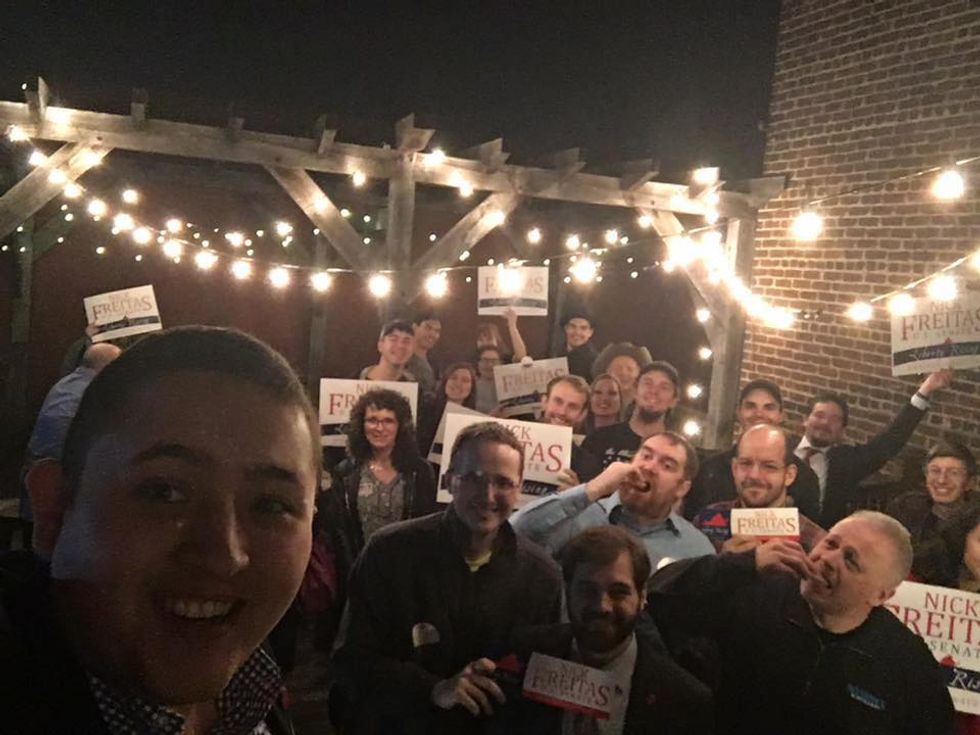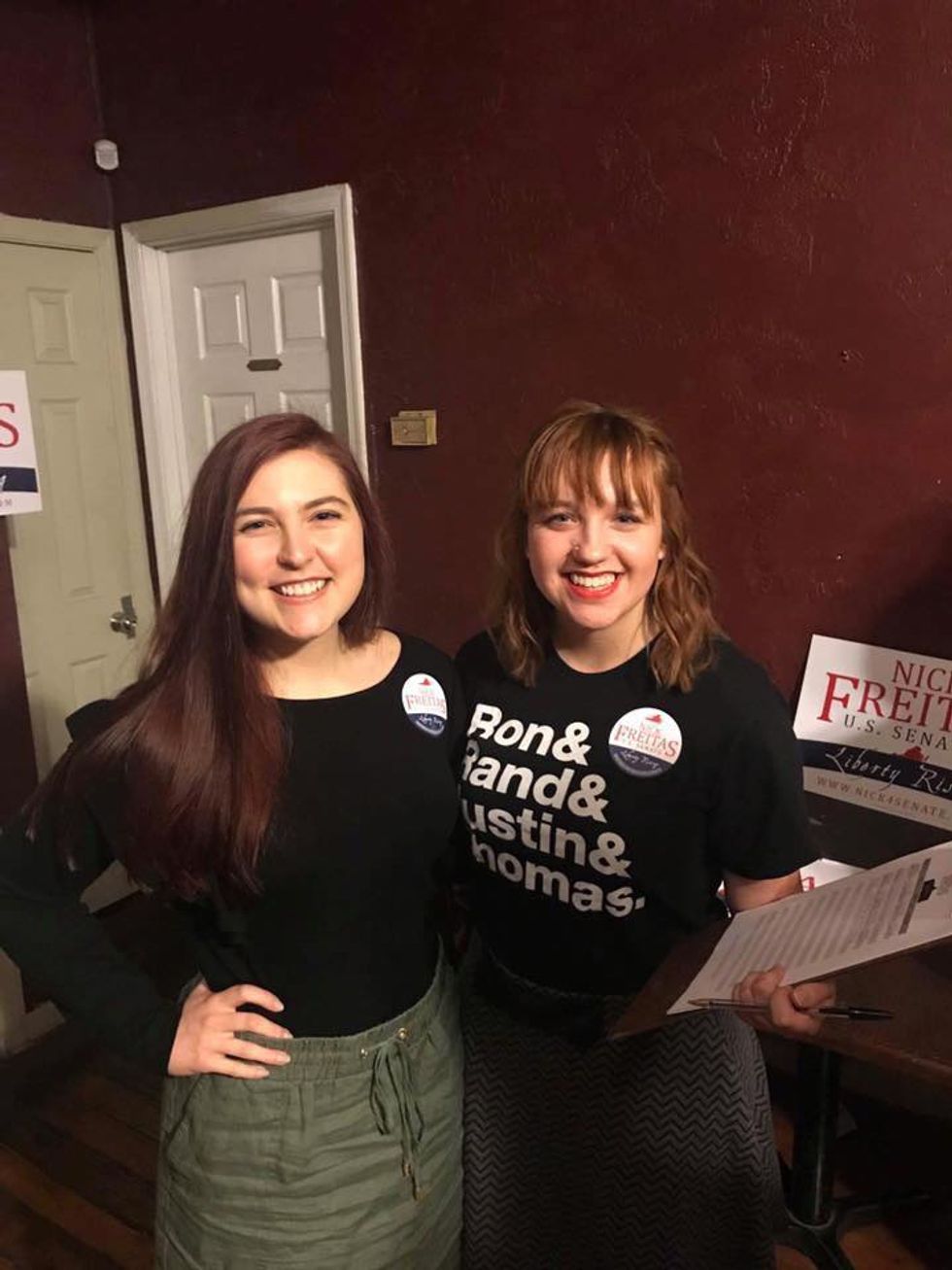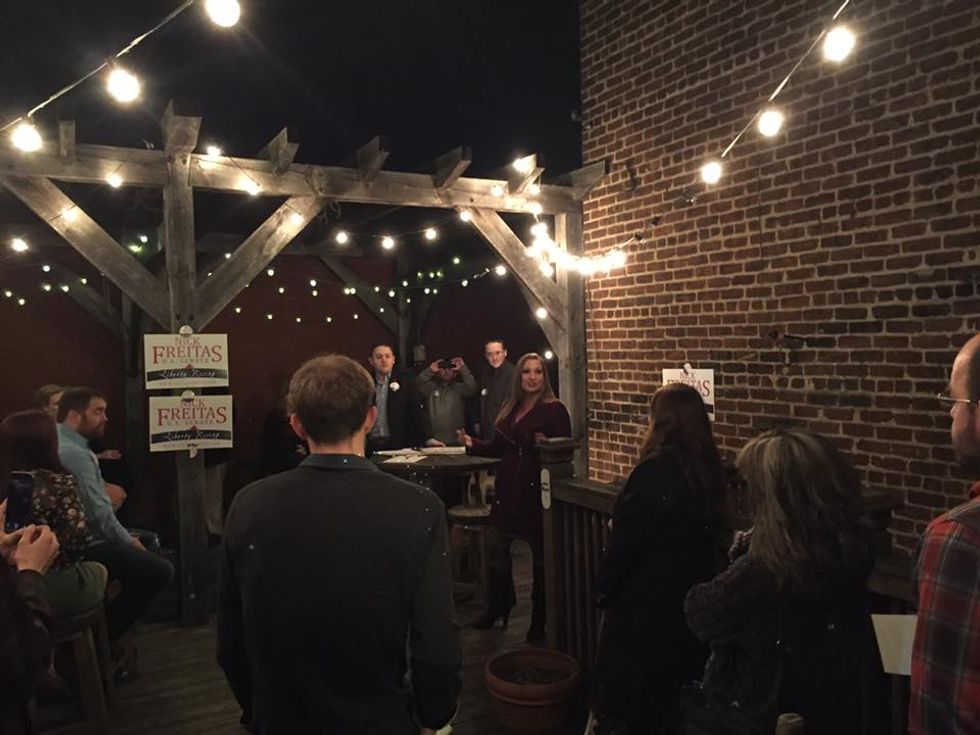No one gets excited for Republicans, not even other Republicans. Take rallies and staged photo ops out of the equation, the grassroots level is really what you need to observe when trying to understand whether actual, average American citizens care about a candidate or an issue.
Socialists for Bernie saw communist style salons pop up in Starbucks and dive bars (because what a better place to recite Marx than a temple to capitalism?) throughout the west coast and MAGA Meet Ups sprouted up and down the south and the Midwest.
Ron Paul Meet Ups also perked up an interest in even apathetic Americans in the 2008 and 2012 campaigns of the libertarian-republican standard bearer for the same reason the others did, because people don’t trust party representatives from the swamp or the local political operatives, but they trust their neighbor, barber, and roommate more.
While many veteran activists of the Ron Paul campaigns admit the decentralized nature of the grassroots forces appeared thanks to the media to make things seem scrappy, loose, and unorganized, what cannot be underestimated is that Ron Paul sprouted a movement amongst three primary categories of voters.
Republicans and Democrats fight tooth and nail for; the 18-34 youth voting group that showed up in force for Barack Obama in 2008, swing vote and split ticket independents that matter in state and local popular vote elections, and the often ignored section of the population living paycheck to paycheck that titer-toter between the working and middle class income brackets that came out and destroyed the once formidable “Blue Wall” for Donald Trump in 2016.
What do Bernie Sanders, Donald Trump, and Ron Paul all have in common? No one could stick them in any of the artificial political categories we had grown accustomed to as a culture until the historic election year of 2016.
While the Socialism of Bernie Sanders and the libertarianism of Ron Paul might be miles apart ideologically, they both expressed to become the counterbalance to the bland and ossified political machine that they both accused of rigging the game of life against the American people.
Bernie Sanders was lucky because the political talking points matched the narrative of the voter’s concerns, as in “we can’t pay our bills and how will we fix it?” Sanders said tax the rich to subsidize the poor. Donald Trump was lucky as well, his base’s concerns regarded immigration, and what was his response? Build a wall and make Mexico pay for it, easy enough. Now go back to 2008 and 2012, contrary to popular belief, the only complicated things Ron Paul really said were told by commentators, journalists, and pundits who didn’t understand him to begin with.
How do we stop the growth of terrorism? Republican A says more bombs and Republican B says more bombs than Republican A offered, Ron Paul would come in and suggest that maybe indiscriminate bombing actually creates more terrorists, causing blowback regarding the initial policies. All three men, regardless of practicality, offered bold and seemingly brave solutions to what the public sees as institutionalized failures.
This is why Rand Paul, who was once called “the most interesting man in politics,” failed to capture the national stage during his presidential run in 2016. The best day of the junior Paul’s campaign was the day he announced surrounded by fans and loved ones (some even go as far as too say not letting his father speak at his announcement but relegating him to the viewing stands was an early omen), but the moment he had to reach outside of his bubble and go to lengths such as that “dumbass livestream” money and enthusiasm fell apart.
While he spoke about criminal justice reform, other Republicans spoke about the ethics of the southern border wall, and when he spoke about the drug war, they began to debate who would build a bigger wall. Yes, Rand had “radical” stances compared to your average Republican or Democrat, but he wasn’t given the chance to offer those “radical” solutions to mainstream talking points people wanted to cover.
After Paul dropped out after not obtaining the victory he felt was in his grasp during the Iowa caucus, many of his young supporters went to the obvious second choice Senator Ted Cruz, but surprisingly these activists with what seemed to be a libertarian bent just turned out to actually have an anti-political class bent, and they rushed to the camps of Bernie Sanders and Donald Trump to continue that momentum.
Now it is 2018 and the first midterm election of the Trump era is at hand. Very far and few between thinking there is anything to be observed in particular during this electoral go around, and the odds of a Ron Paul style “revolution” seem even slimmer.
Unless you pay attention too Virginia right now.
Virginia House of Delegates representative and US Senate candidate Nick Freitas, former Green Beret and Iraq War vet turned junior statesman in the country’s oldest assembly, is the new shiny object in the room so to speak for many constitutional conservatives, libertarians, and independents looking for someone who cares.
The fervor and enthusiasm you would typically find in a general election year, you are currently finding in bars, coffee shops, and backyards right now centering around the Delegate and his message of “Liberty Rising” (which can be broken down to more individual freedom, and less government intervention).
With mini-Trump styled Corey Stewart who happens to be Freitas’ main primary opponent for the GOP nomination for US Senate this summer, you have a fast-talking lawyer from Northern Virginia who telegraphs his moves far too often for voters not to catch the scent of a seasoned politician in a day and age where they just don’t care anymore, especially when they remember his failed statewide campaigns for LT Governor in 2013 and Governor in 2017 (and those were just the primaries).
Incumbent Democrat Tim Kaine, the man who was said by the mainstream media to be inches away from the seat of power as Hillary Clinton’s 2016 VP pick, represents the Clinton style partisan mafia most Democratic voters will second guess as they decide whether to show up to the polls come Election Day.
With the endorsements of liberty styled Republican Senators Rand Paul and Mike Lee, Freitas is even getting a pleasant nod from left leaning camps such as the Virginia Green Party (who won’t officially endorse him but have spoken favorably regarding most his civil rights opinions and voting record) who didn’t even support his Democratic opponent Ben Hixon in 2017. Freitas is continuing to grab national attention from the Left and the Right because his pro-you centered mission is what people want, equality of opportunity, not of outcome.
At an event in the back porch of a coffee shop in downtown Lynchburg, Virginia last week set up by grassroots supporters and I separate from the campaign billed as “Tacos and Liberty” (named intentionally to troll the online comment warriors attempting to create a xenophobic conspiracy regarding Freitas’ ethnic heritage) the crowd of around sixty people was made up of college students who didn’t match the stereotype of your regular CPAC attendee, and elder members of the local Republican Party. These were not the type of people you would often mix together in a social setting. While there, several people mentioned how it felt more like a party, and less like a campaign event, which was the event’s intention.
“This is what happens when lovers of liberty find common ground in order to promote freedom of the individual” one attendee told me.
“I haven’t seen such a diverse crowd since the Ron Paul campaign” a former Ron Paul 2008 activist also stated. Young, old, black, white, liberal, conservative, and libertarian, no one gave the same answer for why they supported Freitas. Ranging from the drug war to foreign intervention and monetary policy, the only thing that surpassed the diversity of the crowd was the diversity of ideas all centered on the message of “Liberty Rising.”






















